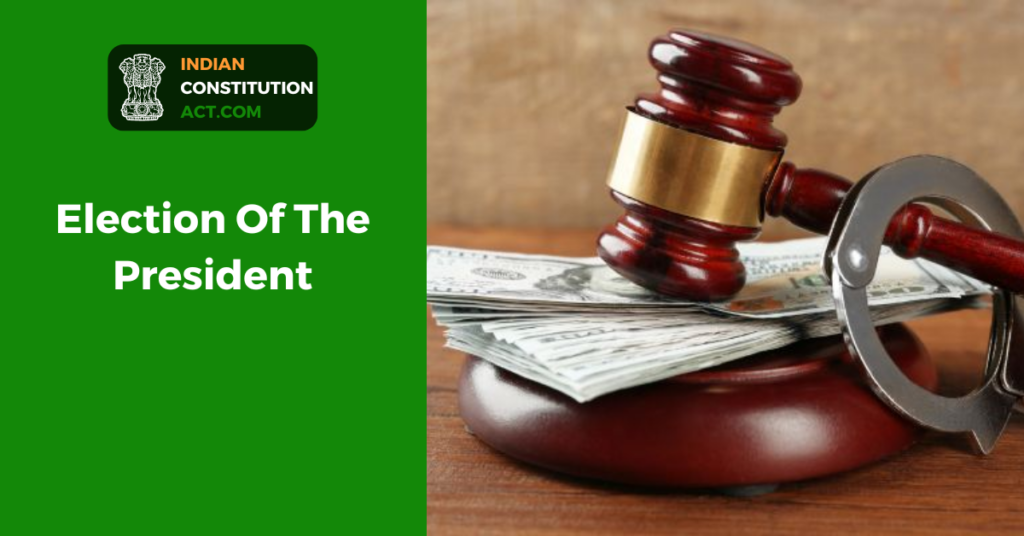The Indian Constitution plays a very important role in our country. If it were not there, perhaps our country would have been able to function properly and people would have been able to live here. Today we will talk about Article 71 of the Indian Constitution which tells about the things related to the election of President and Vice-President and also tells what procedure should be taken while conducting an election.
Table of Contents
What Is Article 71 In Simple Words?
Article 71 tells how any issue arising regarding the election of Vice-President or President will be resolved. There are 4 clauses in this article, let us understand them one by one.
Article 71 Clause 1
If any doubt or dispute arises regarding the election of President or Vice-President, it will be resolved only by the Supreme Court and its decision will be final. Even if the decision of the court comes against the President or Vice-President, the decision will be final.
Article 71 Clause 2
If the Supreme Court says that the election of the Vice-President or President is invalid, then the President will have to vacate his post. But the decisions taken by the President during his tenure will remain the same and the work done by him will continue as it is.
For example, let us assume that a candidate became the President in 2000. But the case went on in the Supreme Court for two years and then in the third year, a decision was given that the elections would not be considered valid. But all the decisions taken by the President from 2000 to 2003 will remain the same, no changes will be made to them.
Article 71 Clause 3
As we told you earlier, the people who made the Constitution of India were very far-sighted and forward-thinking. They have written in this clause that if the Parliament wants, it can change this article whenever required.
For example, if the Parliament wishes, it can also remove this law so that the Supreme Court will have no role in the election of the President or Vice-President. And as it is written in Clause 2 of Article 71 even after the removal of the President, there will be no change in the work done by him. So if the Parliament wants, it can remove this clause from this article.
Also read: Article 70 of the Indian Constitution: Discharge Of President’s Function
What Is Article 71 Of The Indian Constitution
Matters relating to, or connected with, the election of a President or Vice-President.
- Clause 1: All doubts and disputes arising out of or in connection with the election of a President or Vice-President shall be inquired into and decided by the Supreme Court whose decision shall be final.
- Clause 2: If the election of a person as President or Vice-President is declared void by the Supreme Court, acts done by him in the exercise and performance of the powers and duties of the office of President or Vice-President, as the case may be, on or before the date of the decision of the Supreme Court shall not be invalidated because of that declaration.
- Clause 3: Subject to the provisions of this Constitution, Parliament may by law regulate any matter relating to or connected with the election of a President or Vice-President.
- Clause 4: The election of a person as President or Vice-President shall not be called into question on the grounds of the existence of any vacancy for whatever reason among the members of the electoral college electing him.
Election Of The President

Any person cannot become the President of India, to participate in the presidential election a person has to fulfill some criteria only then he will be eligible to participate in the election. We have listed all the criteria below:
Electoral College & Secret Ballot: The value of each vote is defined by a procedure determined in the Indian Constitution. Voting in which each person writes their choice on a piece of paper is used.
Eligibility: The person must be a citizen of India and should not be less than 35 years of age.
Nomination: The process starts with nominating candidates. Any Parliament member can suggest a name of the candidate, and different members should support this nomination.
